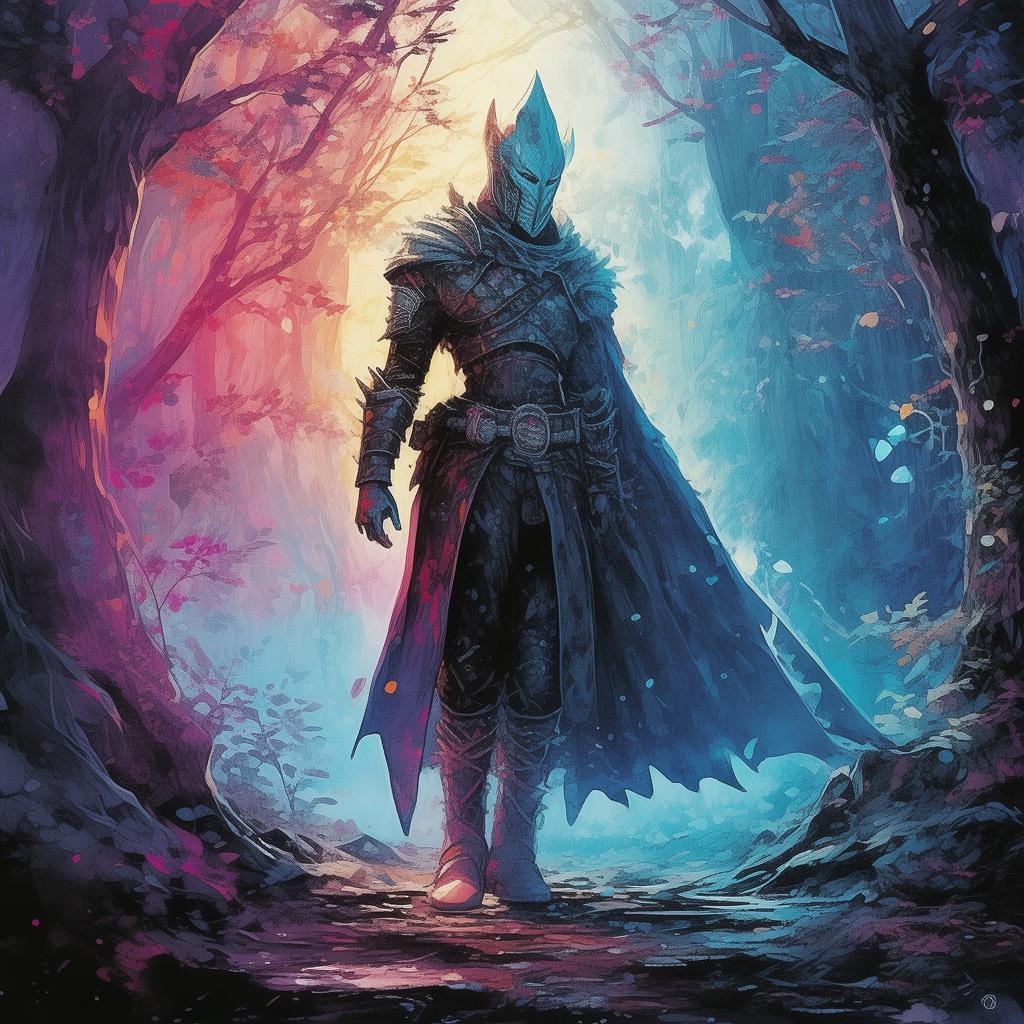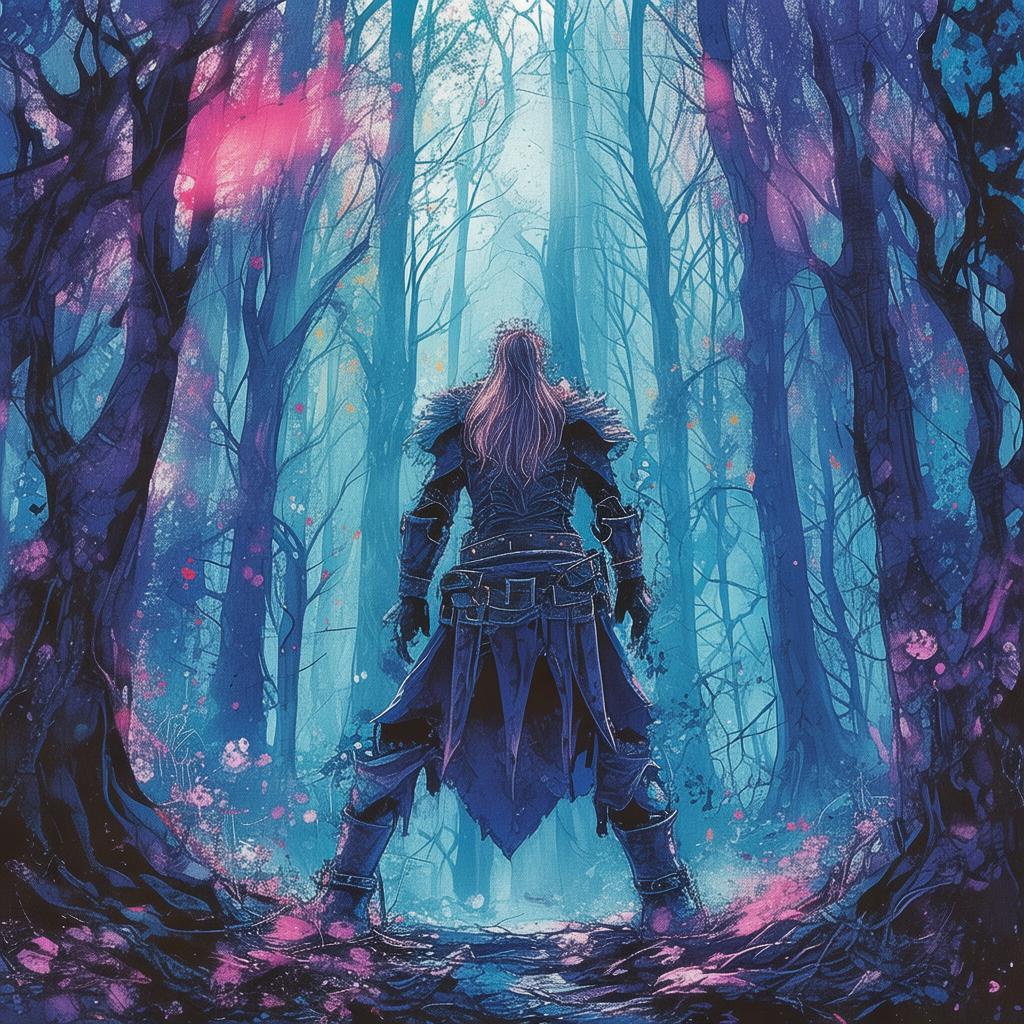The Dragon's Lament: Laozi's Dilemma
In the ancient kingdom of Zhou, there lived a wise man known as Laozi, whose name echoed through the ages as the author of the Tao Te Ching. His teachings, profound and timeless, spoke of harmony with the natural world and the pursuit of inner peace. Yet, as the sun dipped below the horizon of his tranquil abode, a whisper of destiny called to him, a whisper that would challenge his very essence.
The king of Zhou, a man of grand ambition and towering ego, sought to immortalize his name by bestowing upon him a place in his court. The king offered Laozi the throne, a seat of power and wealth, a dynasty to rule with absolute authority. But there was a price, a heavy cost to pay for such glory.

The whisper, however, was not of power, but of poetry. It spoke of a land where the words of the heart could paint the world in colors unseen, a poetic paradise where every sonnet sang with the soul of the earth itself. It was a place where Laozi's voice could resonate with the wind and the rain, where his thoughts could flow like the river, ever-changing yet ever constant.
The choice was stark and clear: the path of the king or the path of the poet. The courtiers and advisors, the sycophants and the scholars, all gathered to witness the decision. They awaited the words of Laozi, their master, their sage, their voice of reason.
In the heart of his home, surrounded by the tranquil simplicity of nature, Laozi stood at the crossroads. He closed his eyes, seeking the guidance of the Tao that had always been his compass. The silence deepened, the world seemed to hold its breath.
And then, he spoke. "The dynasty you offer me is a dream woven from the threads of power and ambition, a dream that fades with the morning mist. The poetic paradise beckons with the promise of a dream that never dies, a dream that is the essence of life itself."
The court was still, the whispers hushed. Laozi turned to face the king, his eyes alight with a fire that no crown could quench. "I choose the poetic paradise, Your Majesty. My heart belongs to the words that dance on the wind, the songs that echo in the mountains. I will not be bound by the chains of a throne, but will instead be freed by the wings of poetry."
The king, taken aback by the sage's resolve, bowed his head in respect. "Then you shall have your paradise, Laozi. May your words be the legacy that outlasts all dynasties."
And so, Laozi left the court, his heart light with the freedom of choice. He wandered into the mountains, his feet following the paths that the wind and the rain had shaped. He began to write, his words flowing like the rivers, his thoughts blossoming like the flowers of spring.
Years passed, and the king's dynasty crumbled, like dust in the wind. But the words of Laozi remained, etched in the hearts of those who sought wisdom. They spoke of a world where the truest form of power was the power of the spirit, where the greatest legacy was not one of gold and jewels, but of poetry and peace.
The Dragon's Lament: Laozi's Dilemma is a story of choice, of the eternal battle between the material world and the spiritual one. It is a tale of one man's courage to follow his heart, even when the world around him crumbles. And in the end, it is a reminder that the greatest power of all is the power of the word, the power of the heart, and the power of the soul.
✨ Original Statement ✨
All articles published on this website (including but not limited to text, images, videos, and other content) are original or authorized for reposting and are protected by relevant laws. Without the explicit written permission of this website, no individual or organization may copy, modify, repost, or use the content for commercial purposes.
If you need to quote or cooperate, please contact this site for authorization. We reserve the right to pursue legal responsibility for any unauthorized use.
Hereby declared.









